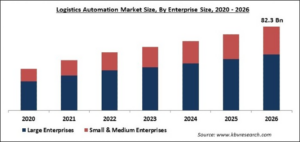
EU finalizes €43 Billion European Chips Act
The European Union (EU) has finalized a €43 billion bid to increase domestic semiconductor production, in the wake of prolonged and ongoing disruption to chip supplies. The EU executive, the European Commission (EC), reached a provisional agreement on the terms of the European Chips Act, which seeks to double the EU’s market share in semiconductor development, manufacturing, and material supply chains from 10% to 20% by 2030.
The Act’s main components are: Chips for Europe Initiative This will pool resources from member states and third-party countries associated with the existing Union programs, as well as the private sector. A total of €11 billion will be made available to strengthen research, development, and innovation. Framework to ensure security of supply, a Chips Fund will facilitate access to finance for start-ups to help them mature their innovations and attract investors. Monitoring Coordination between member states and the EC will underpin monitoring of the supply of semiconductors, estimating demand and anticipating shortages.
Swedish Minister for Energy, Business, and industry, Ebba Busch, stated “The new rules represent a real revolution for Europe in the key sector of semiconductors. It will transform our dependency into market leadership, our vulnerability into sovereignty and our expenditure into investment.”
Interested? Click here to read more
Canada matched USA subsidies to win Volkswagen battery plant
Prime Minister Justin Trudeau’s government agreed to subsidies that may top $13 billion over a decade to land an electric-vehicle battery plant by Volkswagen AG, the company’s first gigafactory outside Europe.
The funds are provided through a contract negotiated by Trudeau’s industry minister. Canada will provide annual production subsidies as well as a grant toward the factory’s capital cost effectively matching what Volkswagen could have received via the Inflation Reduction Act if they had chosen to located the plant in the U.S. The factory, to be part of Volkswagen’s PowerCo unit, will be likely be the largest manufacturing site in Canada. “This is about us seizing generational opportunities,” Champagne told Bloomberg News in an interview. “This is about raising our level of ambition.”
The minister said the plant will cost about $7 billion to build, will have a footprint equal to 350 acres, and will create thousands of jobs in the region around St. Thomas, the southern Ontario city where it will be located. Canada is offering around $700 million in capital expense grants to Volkswagen through its Strategic Innovation Fund. And there may be more money from Ontario’s provincial government.
Read more here
Amazon shifts their fulfillment network
Amazon are making a completed a shift from a national fulfillment network to a regionalized model to reduce costs and boost delivery speeds that will optimize their supply chain. The CEO Andy Jassy stated this in a recent letter to shareholders.
The CEO then goes onto say “We made significant internal changes to create eight interconnected regions in smaller geographic areas.” In addition, “Each of these regions has broad, relevant selection to operate in a largely self-sufficient way, while still being able to ship nationally when necessary.”
Amazon’s previous national distribution model would have to ship an ordered product from other parts of the country if a local fulfillment center didn’t have it in stock. This increased the company’s cost to fulfill the order while lengthening delivery times. With its regionalized fulfillment model now in place, Amazon is looking to ramp up its next-day and same-day delivery activity. The company is on pace to have its fastest delivery speeds for Prime members ever in 2023. This change is in line with their recent adaptation of 2-hour same day delivery with Rite Aid.
Click here to read more.
- SEO Powered Content & PR Distribution. Get Amplified Today.
- Platoblockchain. Web3 Metaverse Intelligence. Knowledge Amplified. Access Here.
- Minting the Future w Adryenn Ashley. Access Here.
- Source: https://www.allthingssupplychain.com/supply-chain-weekly-wrap-up-04-14-2023-04-20-2023/?utm_source=rss&utm_medium=rss&utm_campaign=supply-chain-weekly-wrap-up-04-14-2023-04-20-2023
- :has
- :is
- $UP
- 2023
- a
- Able
- About
- access
- Act
- activity
- adaptation
- addition
- AG
- Agreement
- Aid
- Amazon
- ambition
- an
- and
- Andy Jassy
- annual
- anticipating
- ARE
- areas
- around
- AS
- associated
- available
- battery
- BE
- being
- between
- bid
- Billion
- Bloomberg
- boost
- broad
- build
- business
- by
- Canada
- capital
- Center
- ceo
- chain
- chains
- Champagne
- change
- Changes
- Chips
- CHIPS Act
- chosen
- City
- click
- commission
- company
- Company’s
- Completed
- components
- contract
- coordination
- Cost
- Costs
- could
- countries
- country
- create
- day
- decade
- delivery
- Demand
- Dependency
- Development
- Disruption
- distribution
- Domestic
- double
- EC
- effectively
- energy
- ensure
- EPA
- EU
- Europe
- European
- european commission
- european union
- European Union (EU)
- EVER
- executive
- existing
- facilitate
- factory
- fastest
- finalized
- finance
- First
- Footprint
- For
- Framework
- from
- Fulfill
- fulfillment
- fund
- funds
- geographic
- Goes
- Government
- grant
- grants
- Have
- help
- HTTPS
- in
- Increase
- increased
- industry
- Initiative
- Innovation
- innovations
- interconnected
- internal
- Interview
- into
- investment
- Investors
- IT
- ITS
- Jobs
- jpg
- Justin
- Key
- Land
- largely
- largest
- Leadership
- Level
- likely
- Line
- local
- located
- looking
- made
- Main
- Making
- manufacturing
- Market
- matched
- matching
- material
- mature
- May..
- member
- Members
- million
- model
- money
- monitoring
- more
- National
- nationally
- necessary
- network
- New
- news
- now
- of
- offering
- on
- ongoing
- Ontario
- operate
- opportunities
- Optimize
- order
- Other
- our
- outside
- over
- Pace
- part
- parts
- Place
- plato
- Plato Data Intelligence
- PlatoData
- pool
- previous
- Prime
- private
- private sector
- Product
- Production
- Programs
- provide
- provided
- Provincial
- provisional
- raising
- Ramp
- reached
- Read
- real
- received
- recent
- reduce
- region
- regions
- relevant
- represent
- research
- Resources
- Revolution
- rules
- s
- Said
- same
- sector
- security
- Seeks
- selection
- semiconductor
- Semiconductors
- Share
- Shareholders
- shift
- Shifts
- shortages
- significant
- site
- smaller
- Southern
- sovereignty
- speeds
- start-ups
- stated
- States
- Still
- stock
- Strategic
- Strengthen
- supply
- supply chain
- Supply chains
- terms
- that
- The
- their
- Them
- There.
- These
- they
- third-party
- this
- thousands
- Through
- times
- to
- top
- Total
- toward
- Transform
- u.s.
- union
- unit
- us
- USA
- via
- volkswagen
- vulnerability
- Wake
- Way..
- weekly
- WELL
- What
- which
- while
- will
- win
- with
- would
- zephyrnet











